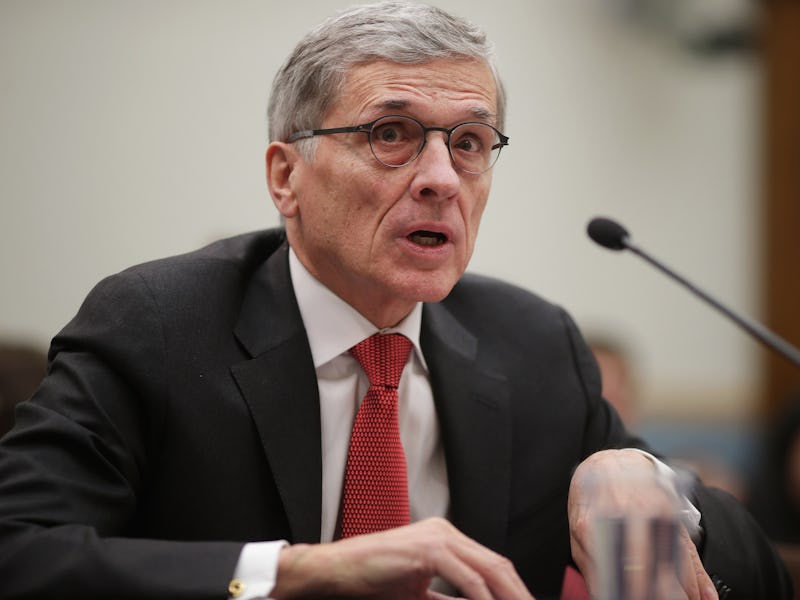FCC Chief Tom Wheeler Wants Internet Privacy Regulated Like Phone Privacy
Wheeler's new proposal will be voted on to enter a period of open comment on March 31.

Tom Wheeler, chairman of the Federal Communications Commission, is on a roll lately, disrupting cable boxes, pushing for $9.25broadband access to low-income families, and now he’s taking aim at the shortage of privacy protections against Internet service providers.
In an op-ed for The Huffington Post, published today Wheeler proposed a plan that would increase consumer protections against internet service providers, who currently have free reign to do anything with user information collected from Internet searches. He says he wants to give consumers “control over how their information is used.”
In order to do that, Wheeler is looking to build a model off existing regulations imposed on phone companies, in which the FCC already limits the ability to repurpose and sell information gleaned from a user’s phone activity.
But Wheeler eagerly emphasize that the proposal will not take away an ISP’s ability to use the information they collect, but rather give consumers the option to say whether or not they want ISPs to do so.
Under the proposal, there would be just three actions ISPs could take without first asking your permission:
- “ISPs would be able to use information about where you want to go on the internet in order to deliver the broadband service you signed up for, just as phone companies can use the phone numbers you dial to connect you to your calls.”
- “They would also be able to use customer information for other purposes that are consistent with customer expectations; for example to market higher speed connections and to bill for their services.”
- “ISPs would be able to use and share customer information with their affiliates to market other communications-related services unless you ‘opt out’ and ask them not to.”
All other actions that involve collecting personal data from users would require them to “opt in,” a process that is considered more transparent than “opting out,” because it doesn’t require a deeper knowledge of the subject to adjust preferences.
Wheeler also notes that his proposal does not protect against the privacy policies of individual websites. His argument here is that consumers have the ability to not visit certain websites if they disagree with the site’s privacy policies, whereas subscribers are stuck with their ISP.
According to data collected by the FCC in 2013, 67 percent Americans have two or fewer options when they choose their ISP. Furthermore, Wheeler argues it’s downright hard to switch, even if you have the option.
Information Technology and Innovation Foundation, a Washington-based think tank, published a report several days before Wheeler’s proposal was released, saying regulations such as these would be a “mistake.” Trying hard to spread the term “broadband populists,” the think tank claims these regulations would stifle innovation by cutting off revenue streams that would otherwise go to increased network strength or consumer discounts. However, it’s hard to imagine billion dollar corporations being hindered financially by a mere tweak in privacy policy.
The Foundation also notes, this is a way for Wheeler and those meddling “broadband populists” to evade Congressional approval and set up a “European-style privacy regime for the United States.”
At the FCC’s March 31 meeting — when the organization will vote on several issues — Wheeler is hoping the other members will allow the proposal to enter an open comment period before adopting and enacting the final proposal at a later date.